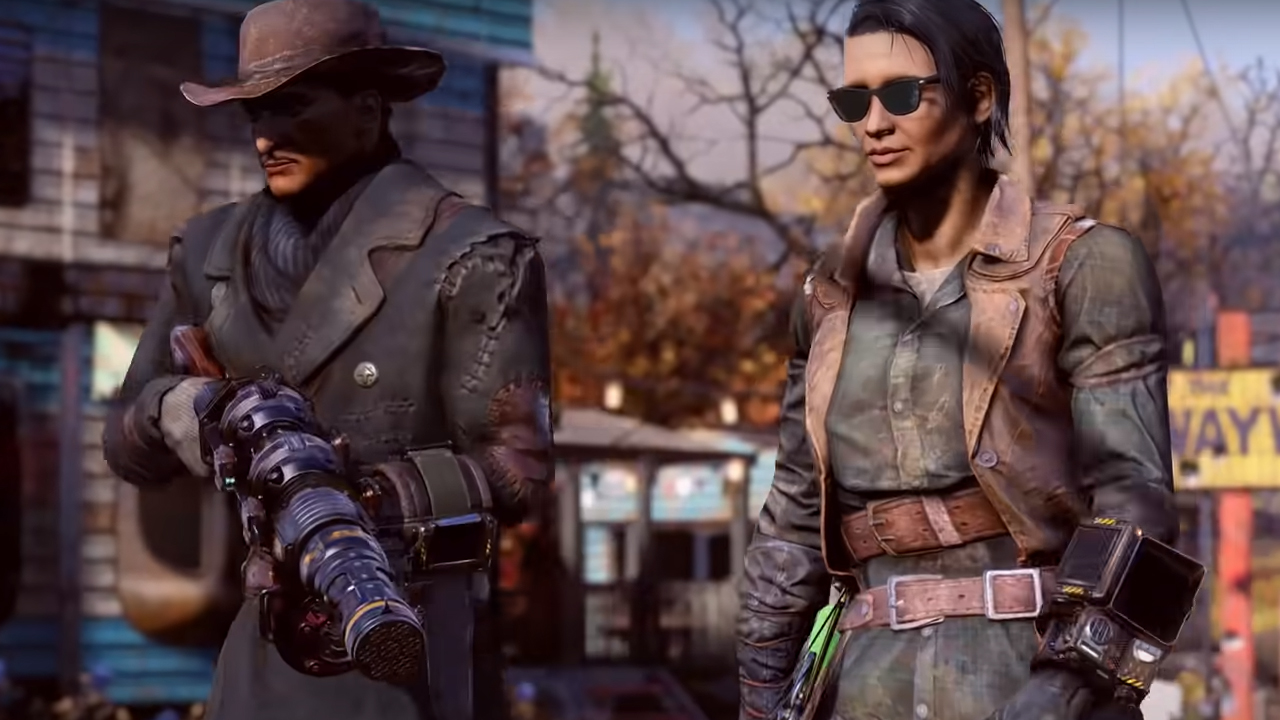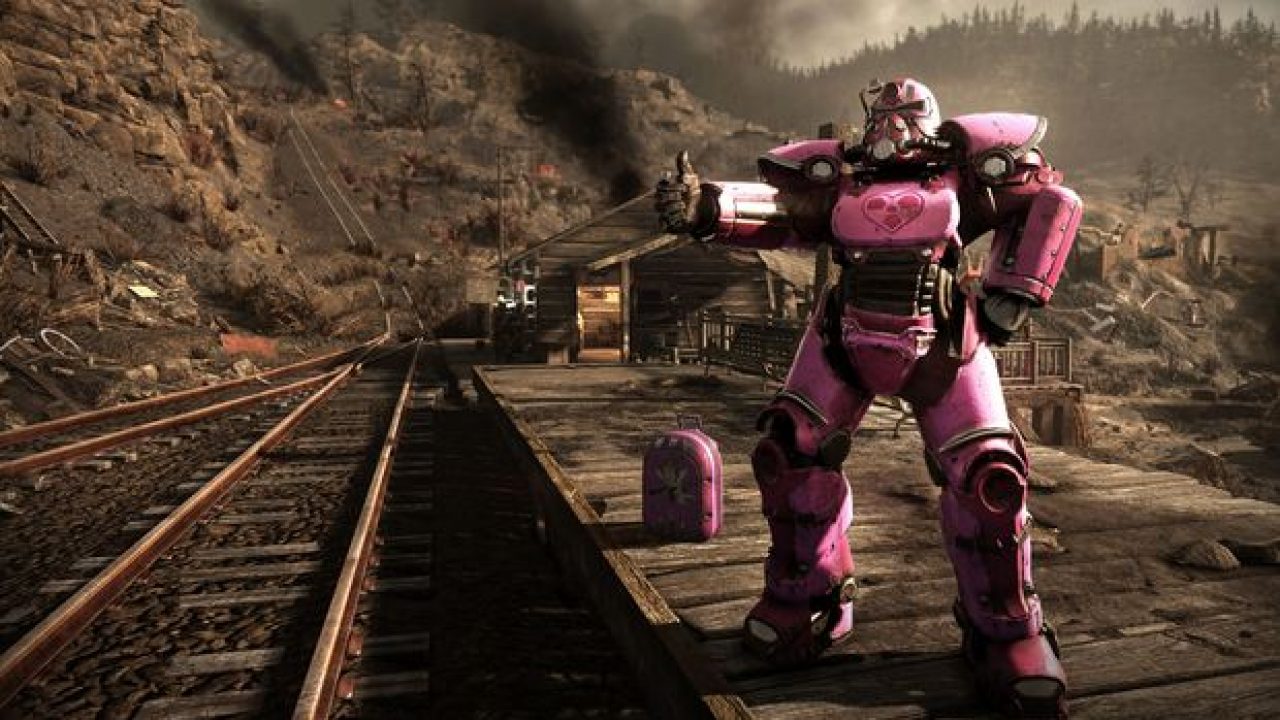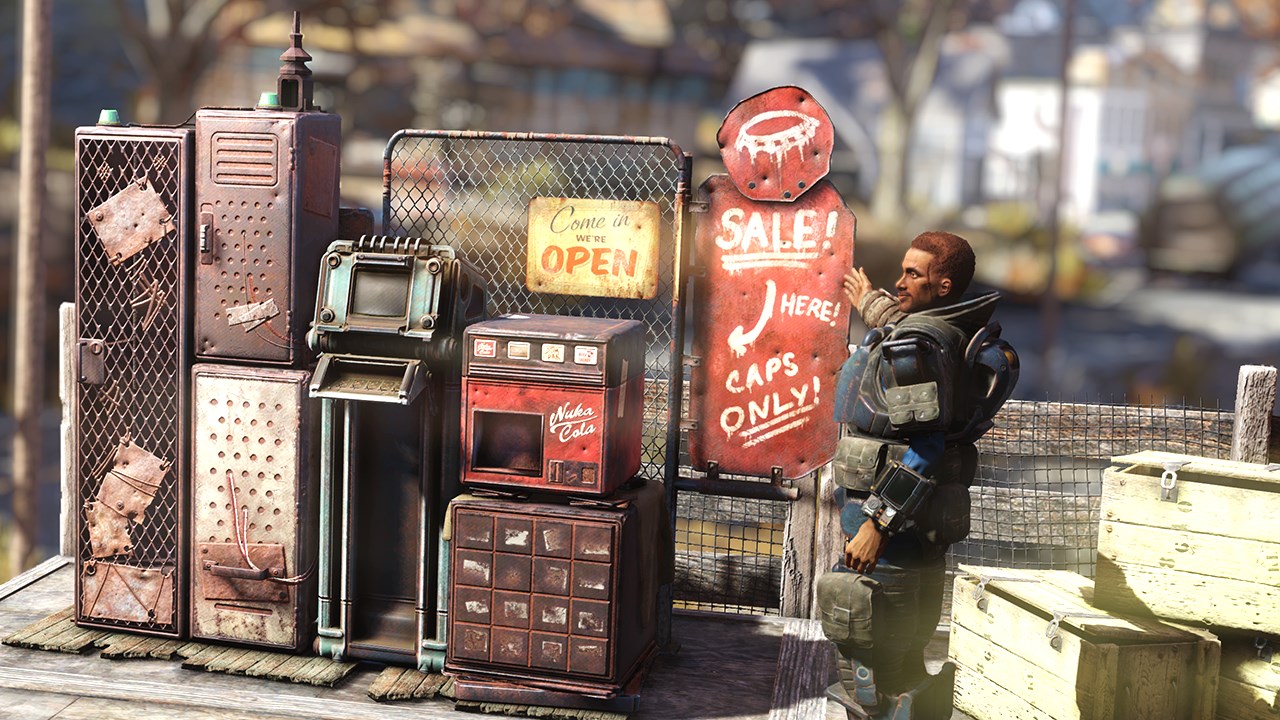Fallout 76 is a sharp reflection of how we could survive the apocalypse - will Wastelanders change that?
The community spirit in Fallout 76 makes it one of the best representations of the impending endtimes

There are ground-rules when it comes to what would happen in an apocalypse, and they seem to apply to Fallout 76 Wastelanders. If you're not wearing tyres as a fashion statement or getting over-familiar with punk rock hairstyles circa 1985, is it even the end of the world?
As it turns out, 'yes'. A group of researchers within the USA's Federal Emergency Management Administration (or 'FEMA', if you're feeling fancy) have dug into what people might actually do if society came crashing down around them, and it's not what you'd expect. Rather than pulling on studded leather and becoming Viking-pirates of the highway, we're more likely to help each other out. Even stranger, it turns out that one of the few games to get this right is Fallout 76. Judging by what we've seen so far, Wastelanders looks set to continue the tradition now that it's finally upon us.
That may come as a surprise considering everything going on right now - or last year's squabble between Fallout 1st subscribers and the rest of its player base - but honestly, it's true. Why? Simple. Bethesda's multiplayer RPG nails one aspect of the apocalypse so many others don't: basic human decency.
Although I appreciate how this may feel like a stretch considering the fact that Wastelanders pits two factions against each other, it doesn't wash away months of goodwill. Ironically, its survivors have made the end of the world a nice place to be. You'll get the occasional troublemaker, sure, but most go out of their way to assist others in need.

A few months back, my brand-new Vault Dweller had just emerged from the starting bunker to find a high-level player waiting for them. If this had been any other game, I'd have been blown to smithereens. Instead of doing a cheeky murder, the player just dropped a bag at my feet. There was a distinct lack of severed heads or live grenades inside, too, instead packed to the brim with armour, food, weapons, and medicines to help get me started. I was stunned. They'd clearly seen me on their world map, fast-travelled over, and waited until I emerged. There was no expectation behind their altruism either; before I could say a word, the player threw up the heart emoticon, turned on their heel, and vanished into the wilderness. They just wanted to help.

24 essential Fallout 76 tips to know before you play
It wasn't an isolated incident, either. I've now spent dozens of hours in Fallout 76, and 90% of my experiences with other people have followed this example. According to FEMA, those random acts of kindness are closer to reality. But how could it possibly know? The planet may not have been doused in nuclear fire before, but it does suffer through apocalyptic earthquakes, eruptions, and tsunamis on a regular basis. They're as close to an end-of-the-world scenario as you can get in real life, but people still band together all the same. Even the horrors of World War 2 encouraged a sense of camaraderie in those living through terrible conditions.
As FEMA's research notes, "in contrast to the panicky and lawless behavior that is often attributed to disaster-stricken populations, public behavior during earthquakes and other major community emergencies is overwhelmingly adaptive, prosocial, and aimed at promoting the safety of others and the restoration of ongoing community life". Indeed, looting and violence aren't all that common. If anything, the notion of societies going feral is based on our assumptions and paranoia rather than evidence. As with so many things, we fear those that we don't understand.
Weekly digests, tales from the communities you love, and more
That's because the bonds of a community are stronger than terror. Catastrophes don't occur in isolation; they happen to groups that have built up relationships, routines, and shared goals over decades. You could reduce this to cynical common sense if you were so inclined, a simple case of quid pro quo, but the fact remains that we are more likely to assist each other in a time of shared crisis than rob our neighbours blind. You can find many examples of this throughout history, detailed in research papers such as Facing Hazards and Disasters, and perhaps that's why kindness is so clearly reflected in the wastelanders caught up in Fallout 76's shared apocalypse.
Beta together

As a first for the series, it's also something mirrored by the in-game story. While the factions of post-war Appalachia are rife with the same mistrust for one another seen in series at large, Fallout 76 bucks the trend with emergency services that step up, form a government, and rebuild society. These 'Responders' took on volunteers from the local populace and were doing pretty well for themselves before being wiped out by the Scorched plague.
Indeed, according to FEMA, there is "extensive evidence that members of the public are in fact the true 'first responders' in major disasters […] As the emergency period following a disaster lengthens, unofficial helping behavior begins to take on a more structured form with the development of emergent groups—newly formed entities that become involved in crisis-related activities". In other words, Fallout 76 is spot on with its plotline about community-minded firefighters, paramedics, cops, and volunteers.
"We're more likely to assist each other in a time of shared crisis than rob our neighbours blind."
So, why do we assume that everyone's going to break down at the first sign of trouble? It's probably because that's where most post-apocalyptic fiction comes from - our own universal fears. In Dawn of the Dead, it was apprehension about losing ourselves to mindless consumer-culture. In Mad Max, it was the panic about dwindling resources and what we'd do to protect them. These concepts set our imaginations on fire, against backdrops where the humdrum routines of normality are stripped away, and we're free to let loose in fulfilling those fantasies of adventure and travel.
It'll be interesting to see how Fallout 76 develops now that the audience has been split in two via Wastelanders. Bethesda has inadvertently fractured its user base, and sides are rapidly being drawn. Will they tear each other apart? Perhaps. After all, if history has taught us anything, it's that war never changes.
For more, check out more upcoming PS4 games for 2020 and beyond, or watch our latest episode of Dialogue Options below.

I've been writing about games in one form or another since 2012, and now manage GamesRadar+'s tabletop gaming and toy coverage. You'll find my grubby paws on everything from board game reviews to the latest Lego news.


